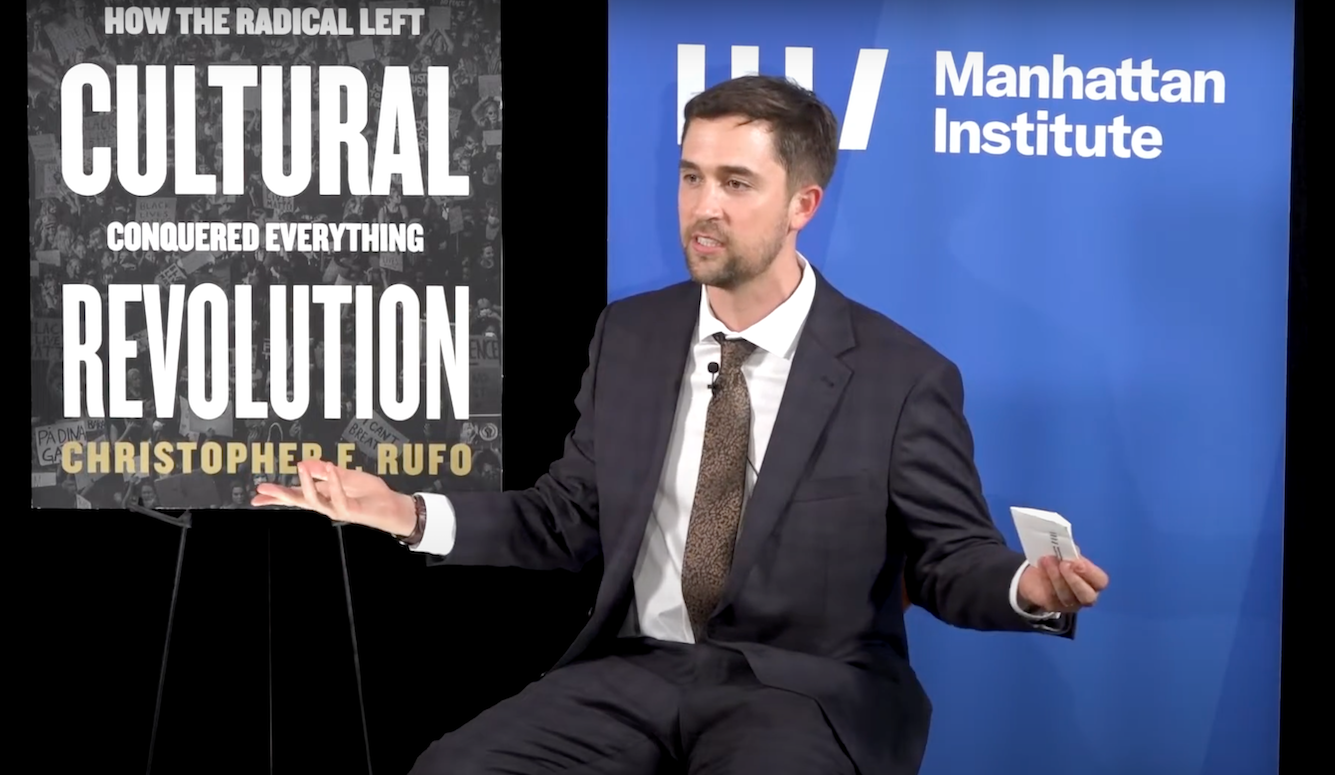Art and Culture
Why Are Non-Believers Turning to Their Bibles?
There are nonbelievers, though, who turn to the Bible for advice and inspiration and are “cultural Christians” in a deeper sense.

Even in the middle of the atheism boom, Richard Dawkins described himself as a “secular Christian”. To the author of The God Delusion this meant an appreciation of “aesthetic elements” such as church bells. Christopher Hitchens felt the same. At the end of one interview with the firebrand antitheist the interviewer invited him to the pub. “That’d be nice,” he said, “But actually I really want to go to Evensong.” Hitchens, the interviewer reflected, “had some enthusiasm for the words and sounds of the church, which he could easily disassociate from the actual believing part.”
Decades before, Philip Larkin had admitted, in “Church Going”, that a church was:
A serious house on serious earth…
In whose blent air all our compulsions meet
Are recognised and robed as destinies.
The poet would later describe religion as “that vast moth-eaten musical brocade” but he felt a certain awe inside a church:
If only that so many dead lie round.
Europe and America, of course, have Christian heritage and there is no excuse for intelligent citizens to lack some knowledge of and appreciation for the faith. To reject it as a whole means rejecting Inferno, Paradise Lost and Four Quartets. To dismiss its power is to dismiss the power of Mass in B minor, Requiem and The Creation. To deny its influence on our social norms is to deny the influence of faith on family structures, common law, industry and social justice.
One could value our religious heritage while maintaining that religion is no longer relevant. Christianity might have inspired Dante and Donne but now artists have secular sources of inspiration. There are nonbelievers, though, who turn to the Bible for advice and inspiration and are “cultural Christians” in a deeper sense.
It is striking, if unsurprising, that different nonbelievers have taken different lessons from the same book. Some claim Christianity for progressivism. Daniel MacGuire, a former Catholic priest, argued in his book Christianity Without God that people should reject supernatural claims of Christ and yet embrace Biblical narratives as a “realistic global ethic to heal a planet sinking under the effects of our ungrateful management”. Alana Massey wrote in The Washington Post that such a message appeals to young people who see Jesus as “an anti-capitalist insurrectionist murdered by law enforcement”. Such progressive cultural Christians find it hard to rationalise the verses that relate to private conduct – often emphasising Christ’s command to love the sinner while ignoring his insistence on hating the sin – but find the carpenter’s son who chased the merchants from the temple an appealing avatar for socialist humanism.
Secular conservatives and liberals, led by the Canadian clinical psychologist Jordan Peterson, have also been a revisiting religion. Peterson, a philosophical pragmatist, holds that beliefs contain literal and metaphorical truths. Influenced by Carl Jung, he argues that whether or not great stories reflect actual events they reflect the archetypal narratives of human beings and their societies. Like Richard Tarnas in The Passion of the Western Mind, he diagnoses cultural nihilism in the “deconstructive frenzy” of the postmodernists. His alternative, however, is more traditionalist. He returns to stories told in the Bible.
Peterson’s lectures on the “Psychological Significance of Bible Stories” make the case that knowledge of these texts “is essential to a deep understanding of Western culture, which is in turn vital to proper psychological health…and social stability”. The story of Noah’s Ark, for example, reflects the need to order one’s life so as to withstand chaos. The story of Abraham reflects the need to abjure comfort for the sake of achievement. One could teach these lessons without reference to ancient texts, of course, yet abstracting them from stories weakens the emotional punch and divides our collective consciousness. Peterson makes an effective case, though, as the biologist Bret Weinstein suggests, it is more applicable to general patterns of behaviour than to specific and complex questions.
Yet the rise of cultural Christianity may also reflect a more widespread lapse into in-group-out-group bias. Intolerant identitarians, for example, imagine themselves as modern day impersonations of the Knights Templar, defending Europe from marauding invaders.

Anders Breivik, a militant nationalist who massacred 76 of his fellow Norwegians in July 2011, wrote in his manifesto that while he did not have a personal relationship with Jesus he believed in Christianity as a “cultural, social, identity and moral platform”. Yet “Identity” is the key word in this sentence. The Christian lessons of mercy and forgiveness do not exist in the moral repertoire of violent vigilantes, let alone mass killers. Examples like this show that while a virtue of faith is its social and communal nature—when it is held in merely hostile and embattled terms—it can easily mutate into vice.
If some exploit the faith with the aim of conflict, others exploit it with the aim of building Heaven on earth; a more respectable desire, perhaps, except for the fact that there is at least metaphorical truth in the saying that the road to Hell is paved with good intentions. In the Bible, man is fallen and is saved through God. Pain, and sin, are absent only in Heaven. While we could debate just how constrained the Christian vision of human nature is, there is no debating that its vision is constrained. Utopian atheists like Ernst Bloch, who wrote that the Bolshevik revolution was in essence a continuation of the “fight for God”, are puddles of what the TE Hulme called “spilt religion”; desirous of glories that the world cannot provide; worshipful of that which tends towards corruption.
And finally, there is a question we should not avoid. “Is it true?” John Betjeman once asked, “And is it true?”
For if it is…
No love that in a family dwells
No carolling in frosty air,
Nor all the steeple-shaking bells,
Can with this single truth compare –
That God was man in Palestine
And lives today in Bread and Wine.
Nonbelievers disbelieve to varying degrees. Jordan Peterson, like me, is an agnostic: someone who thinks such questions as “Why is there something rather than nothing?”, “Why are things in motion?” and “What is consciousness?” might have theistic answers. But he does not like the question. He believes it is “an attempt to box [one] in”.

I agree if the question assumes that belief and nonbelief are monolithic. One can accept Christian values without a belief in God, much as one can meditate and practice mantras without accepting all the teachings of Siddhārtha Gautama.
Still, I think the question matters. James George Frazer wrote in The Golden Bough that religions consist of two elements, one theoretical and one practical. The latter involves the duties and the rituals by which religious people serve and worship God. The former, however, is their inspiration: the belief in His existence and the truth of His words. Without this belief, and only scientific naturalism, one has no “vision of the celestial city”, no “fear of the human dead” and no cause for “dependence on the divine”. Religion exists insofar as it is functional; insofar, in other words, as it promotes human well-being. It can do this, of course, but without the grandeur of God, and the promise of Heaven, it is less compelling and less exceptional; part of the structure of societies and not their energising force. Atheists and Christians will, in most cases, diverge on the question of whether this is good or bad but it demonstrates the inescapable importance of the question.
One thing cultural Christianity of both the left and right reveals is a thirst for meaning and a hunger for direction. Austin Frank, a Christian commentator, writes that Peterson has earned such an enormous and enthusiastic following because he’s a professor and not preacher. I disagree. He’s a professor and a preacher. He presents intimidating intellectual discussion but with such eloquence, urgency, optimism and engagement that he sermonises more than he lectures. He appeals less because of academic interest in Carl Jung and William James than because of insecurities about our social and intellectual existence. We need stories. We need sermons. The great challenge is to balance them with our reasoning in the struggle to align our wisdom and will.
“There’s probably no god,” proclaimed the famous slogan on the side of the “Atheist Bus” in 2008, “Now stop worrying and enjoy your life.” No one stopped worrying, and, thus, here we are. The religious instinct perseveres. How it will be actualised is to be contested.






